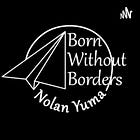Does Everyone Need to Travel?
Slow Travel in an Age of Acceleration

“In an age of acceleration, going at human speed suddenly begins to look like sanity and freedom.” - Pico Iyer.
I couldn’t kill a baby. At least, that’s what you tell yourself six hours into your red-eye flight, one of which you spend waiting for the plane to take off and level out so you can recline your chair 5 degrees. It does nothing to keep your head from bobbing around and freezing in neck-contorting paralysis. The aches between your shoulder blades don’t compare to whatever sadistic excuse for a seat is doing to your tailbone, but somehow, you enter a stage of sleep. Or maybe you’re in business class, and you’ve managed to fall asleep already. Either way, the baby two rows ahead of you starts crying for thirty minutes straight. Then, just as you think it’s over, the baby—which you now refer to as ‘it’ — starts up again. You start to question what you’re capable of.
Somebody needs to get rid of this baby. Or at least put it in the cargo department.
But you’re not a bad person, and you would never act on those thoughts.
You endure.
The first train from the airport is on time, but the second one has a 30-minute delay, not enough time to explore the area. You sit your culo on the metal bench as you try and fail to ignore the sweaty clothes stuck to your body. Or maybe you decide to get a taxi or even an Uber Lux, but now you’re stuck in traffic for two hours because of an accident on the road. A cyclist took a wrong turn, causing a driver to swerve out of the way and hit a tourist bus that took out five pedestrians as it rolled and killed 20 more people trying to get to where they wanted to go.
…So why travel?
To answer that question, I spoke with Dr. Matthew Niblett and Dr. Kristine Beuret. Matthew is the director of the Independent Transport Commission, Britain’s foremost independent transport and land use think tank. Kristine Beuret is a social scientist specializing in transport and urban policy, and she’s the Director of Social Research Associates. Together, they started whytravel.org and wrote the book Why Travel?
In the biological chapter by Charles Pasternak, we review that around 60 000 years ago, homo sapiens left Africa and spread the globe from there. Even when we started settling down around 10,000 years ago, we kept travelling. Why?
Curiosity. Many animals are curious, and by stating travel is, in part, driven by curiosity and that travel makes us human, I’m not saying this to separate us from other animals. If anything, separating ourselves from animals and nature makes us less human. That said, our bipedalism, large brains, dextrous hands, and speech help to explain our ability to travel to more places than any other animal on Earth.
It all started with our ability to stand up straight, scan the horizons, and seek more food, shelter, people, and information. According to Biederman and Vessel, only hunger urges, harm avoidance and the need to find a mate distract us from information-craving. We love to learn, even though our flawed educational systems sometimes make us forget that.
We need to remember that…
You can find an updated and improved version of this article on bornwithoutborders.world.
Click here for the updated article.
I only use Substack for their ad-free networking, Notes, and live videos now.
Why?
Ghost lets me publish like I think: across cultures, languages, and formats.
I’m supporting a non-profit, decentralized, carbon-neutral business not funded by undeniably evil twats like Marc Andreessen.
I’ll actually have a technical support team.
I'm staying away from the social media nightmare where likes define your worth, comments replace community, and billionaires capitalize. If you want to support my work, do what we did before we got scrolling brains–share it in an email, talk about it, send it in a text message, and leave the feed that feeds the lords of technofeudalism. Subscribe to bornwithoutborders.world.



